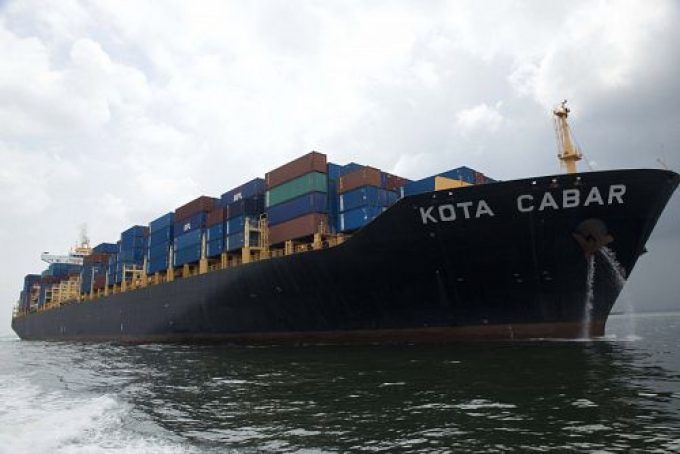Schenker, what Schenker? DSV boss talks up options – yes, Sir!
New corporate structure also serves ‘potential M&A that may come up’. May? Potential?

Singapore-based Pacific International Lines (PIL) could be the next container line to appear on the acquisition radar of the mega-carriers.
According to Alphaliner, PIL’s niche status, particularly on the improving Africa trades, could make it “an attractive target for buyers”, and now that Cosco has snapped up OOCL it is “the only unencumbered candidate”.
Alphaliner noted that, unlike the other three remaining mid-scale carriers with a share of global capacity of 1.5%-2.8%, Yang Ming, HMM and Zim, PIL is not government-linked.
Furthermore, PIL has an ambitious newbuild programme with 16 11,800 teu panamax vessels due for delivery from a Chinese yard from the end of this year through to 2019, which, at a total cost of around $1.4bn, will exert more pressure on the company’s already stretched finances.
These ships will replace six 6,600 teu owned vessels and three chartered 8,000 teu units and are stemmed for PIL’s Asia-US west coast trade, as well as its planned entry onto the Asia-US east coast route in 2018.
Until 2008, PIL and Taiwanese carrier Wan Hai operated a liner service between Asia and North Europe, but it was suspended after incurring heavy losses, with a source at PIL’s European HQ in London admitting its small ships could not compete in the market. PIL took slots on Cosco ships until 2010, when it partnered again with Wan Hai in a short-lived 10-string loop between Asia and North Europe, deploying 4,250 teu ships.
Subsequently, the privately owned carrier, ranking 12th biggest in the world, has contented itself with operating profitable niche services, but managing director, Teo Siong Seng, recently admitted that the past few years had been “very difficult”.
In March, Mr Teo said: “The market has not seen such volatility in its history. But it’s at times like these that it is all the more important for us to remain focused, to not panic and try to find ways to survive.”
According to Alphaliner, the 50-year-old company “recorded a significant net loss last year”, and is further hobbled by the requirement to repay another tranche of 7.25% ticket bonds of around $95m due in November 2018 – just when it will need to pay for the new ships.
The analyst added that PIL had reportedly made a “substantial loss” when selling two bulk carriers and had pledged its shares in container manufacturer Singamas – it has a 41.1% stake – to raise some $180m from banks. The Singamas stake is valued at around $140m, based on Hong Kong stock market prices.
PIL has retained a close partnership with Cosco, establishing slot sharing co-operations in West and East African trades and, in the view of Alphaliner, the Chinese state-owned carrier is seen as its “most likely suitor”.
According to vesselsvalue.com, PIL owns 119 ships, of which 105 are cellular, with a total market value of $1.3bn and $483m as scrap.
Comment on this article
christine Glenn
July 21, 2017 at 10:18 ammost shipping lines have stretched themselves too far by opening their own offices worldwide, especially countries like India, Pakistan, Bangladesh and srilanka, without understanding the culture. the services have gone bad to worse. every staff feels they are unaccountable. if they revert back to dealing with agents it will be good. atleast the agents are on their toes all the time. now the principals can monitor the accounting to ensure no malpratices and they provide good service to the clients.
Mike Wackett
July 21, 2017 at 2:18 pmA very interesting point Christine.
As an ex liner agent, then principal, I would argue that the brand advantage of having own offices is often outweighed by the economics.
If a ship doesn’t call the agent doesn’t get paid; but own offices have to be paid for regardless.
Given that carriers have pretty much cut other costs to the bone, appointing a good agent and closing own offices in certain regions could be a silver bullet for a savvy carrier.